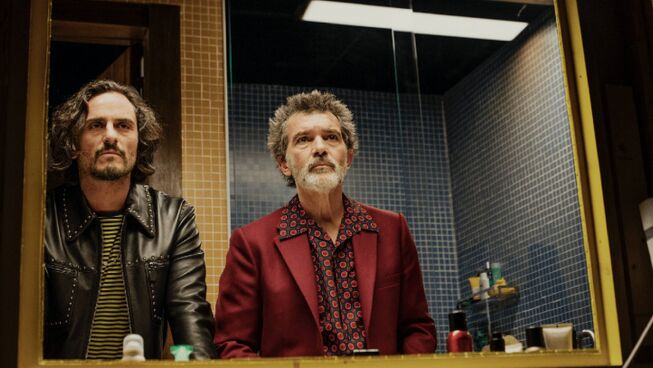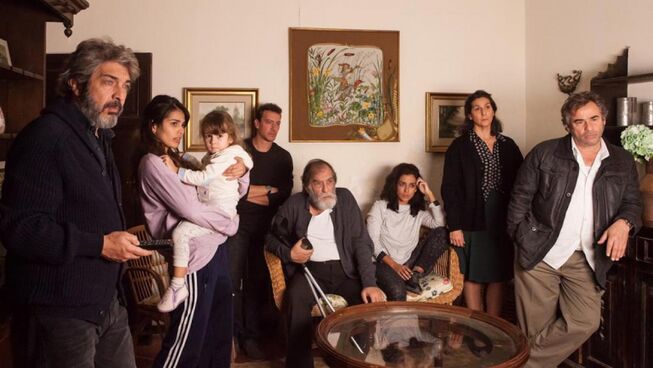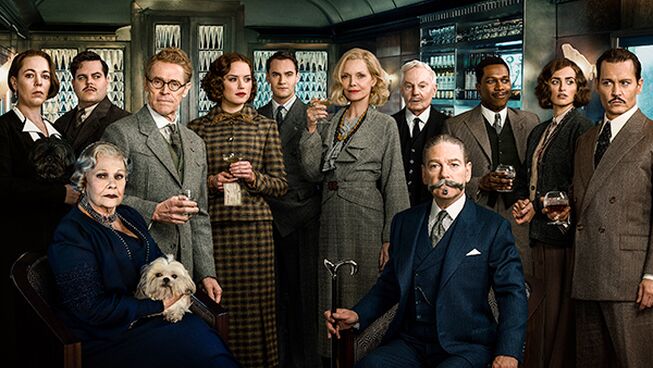
2.5 out of 5 stars
There have been few partnerships in cinematic history that could match that of director Pedro Almodóvar (Pain and Glory) and actress Penélope Cruz (The 355). With eight films and an Academy Award each to their credit, this duo has proven to be a tour de force that has propelled their careers and Spanish cinema to incomparable heights. This partnership brings them together once more with the paternal and political journey of two women whose lives unexpectedly become intertwined as they give birth to babies on the same day.
Janis (Cruz) is an accomplished, middle-aged photographer who becomes pregnant after an affair with Arturo's renowned forensic archaeologist (Israel Elejalde). They met through a photo shoot and her interest in his work related to a mass grave outside of her home village that points back to her family during the Spanish Civil War. After their relationship develops and she becomes pregnant, they have different views on what to do with the baby. This leads Janis to separate from Arturo and raise the child independently.
While she is at the hospital waiting to deliver the baby, the photographer shares a room with a teenage girl who is on her own waiting to deliver her child. The two women connect and after giving birth to their daughters, they exchange numbers and hope to connect once they leave the hospital. This serendipitous relationship leads to a series of unexpected situations that cause their worlds to become linked together by pain and love. Only Pedro Almodóvar could weave together this bizarre series of events while directing the audience towards an awareness of the atrocities of Francisco Franco and his Francoist dictatorship.
There is no denying that the Cruz/Almodóvar is a winning formula for storytelling and filmmaking. They complement one another and bring out the best in each other on and off screen. The Academy Award-winning actress shows her extraordinary talents and how she can still carry a film from beginning to end with captivating style, while not diminishing the performances of her supporting cast and ensuring that she remains at the center while sharing the moments with everyone else in the film. Even when things become convoluted and exceptionally bizarre within the story, Cruz remains the grounding force within the storyline.
While this twisted, Hitchcockian-esque tale begins to fold in on itself and becomes two stories within one. One is a frustrating journey of two women who are thrown together by their maternal experiences and then the final act is a history lesson in the war crimes of the Francoist era. The first will rub up against many viewers' sensibilities as it adds in elements of morality, sexuality and fidelity that may cause some to be taken aback. Most fans of the renowned director would know that Almodóvar is known for pushing the boundaries of all things within these elements of the human condition. Yet, to tack on the vignette of the effects of the Spanish Civil War did prove to be compelling. But it did fail to add to the story and seemed to be from a different picture altogether.
Parallel Mothers has all of the earmarks of the award-winning writer/director and may appeal to his faithful fan base. He has managed to deliver a film that only a mother could love.
REEL DIALOGUE: Where do you find your moral center?
When traveling into the twisted mind of Pedro Almodóvar there should be an expectation that all sense of morality will be challenged. The Spanish director is a masterful storyteller, but probably crosses the lines of conservative society. While he has no qualms in challenging the norms of sexuality and relationships, his writing still maintains a need for justice. These different elements force audiences to consider where the director finds his moral center and how we do the same.
The challenge is to know where to find this integral drive for all of these aspects of humanity. Can it be merely found in our own personal experiences or are there aspects that must come from outside ourselves?
Most of us may not go through the extremes of an Almodóvar film, but we do have to determine right and wrong for ourselves every day. We can look to mankind for examples, but inevitably, people fail the actual test for a moral code. Only one person in history set the standard for morality and proved that no one else could ultimately hold to this standard. This may sound like a hopeless statement, but Jesus did not leave humanity without a solution to this morality juxtaposition.
Are you intrigued? Here is a link to a letter written by Paul called Romans, it opens up things on the subject of morality. It is a short read, but allows for consideration for where it bases your character. Romans






